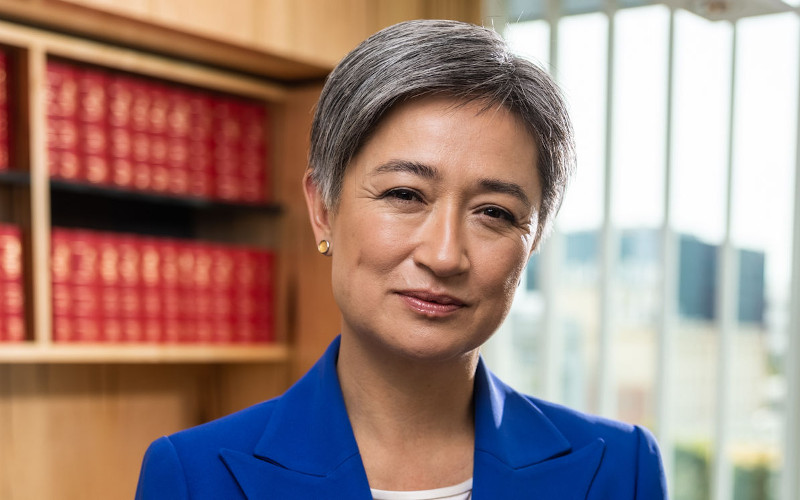Last week, the Medical Association for Prevention of War (MAPW) wrote to Foreign Minister Wong expressing shock and outrage that Australia had not openly protested US President Trump’s 4 February statement of intent to erase Gaza.
Despite the plan being illegal and inhumane in the extreme, threatening to grossly destabilise further a whole region, and giving succour to a nation already plausibly accused of genocide, Australia’s leaders declined to comment on it. We heard no talk from them of the “rules-based order” — so often quoted in other circumstances — or the primacy of international law, or of the rights of the Palestinian people whose land the US president now plans to steal.
“After 16 months of urging stronger action from Australia for the protection of Palestinians, especially Palestinian children”, MAPW wrote, “we did not imagine that Australia would stand by, virtually silent, while plans unfold to simply push the whole population elsewhere and take their land.”
On Friday (7 February), Australia’s refusal to state its support for the rule of law on this matter was taken a step further, after Trump imposed sanctions on the staff of the International Criminal Court because of the Court’s arrest warrants for Israeli (and Hamas) leaders. Australia failed to join a group of 79 nations that condemned Trump’s executive order and upheld the Court as “a vital pillar of the international justice system”.
All these events have, of course, taken place in the context of a war that has left much of Gaza in ruins. For many healthcare workers throughout Australia, including MAPW, the particular focus has been, and continues to be, on the relentless attacks on healthcare, attacks that are now shifting to the West Bank.
In a 17 January letter to MAPW, Wong expressed the government’s “grave concern about the humanitarian situation in Gaza”, stating — in an implicit and welcome acknowledgement of the obscenely disproportionate price paid by innocent people in Gaza — that “Palestinian civilians cannot pay the price for defeating Hamas”.
She stated that she was “leading an influential group of countries to create a global Declaration for the Protection of Humanitarian Personnel, increasing pressure for countries to abide by international humanitarian law”.
While such a declaration could provide an additional means for highlighting the legal obligation to protect humanitarian care during wartime, it already exists in the Geneva Conventions, which have been ratified by practically every country in the world. Reaffirmation of the obligation would not be unwelcome, but there is a very high risk that it would delay and distract attention from effective practical measures needed on a vast scale right now in Palestine (and elsewhere).
Words alone from our government are insufficient. There must be consequences for violators – and here Australia has failed to act. (MAPW was also extremely surprised to read Wong’s claim in her recent letter that “the Australian Government has condemned Israeli Defence Force attacks on civilians or aid workers”, a statement for which we have seen virtually no evidence over 16 months. We have requested details from her department. Statements of concern are a far cry from condemnation.)
That Australia is willing to take active steps against violators of international law is demonstrated by our very readily-imposed sanctions against Russia for its violations in Ukraine. Our double standards are absolutely stark. No measures with real teeth have been imposed by the Australian Government against the perpetrators of the unprecedented carnage and suffering inflicted on the Palestinian people.
For as long as Australia maintains a close diplomatic, defence and trade relationship with Israel — including a Trade and Defence Office in Jerusalem, 59 active permits for the export of lethal military equipment to Israel (including for parts for the F35 fighter jets), MOUs with Israel on defence industry co operation and cyber security, to name just a few elements — Australia is part of the problem, not part of the solution, notwithstanding Wong’s recognition of the gravity of the humanitarian situation. As the adage says, “Actions speak louder than words”.
Wong’s 17 January letter concluded with an affirmation that “Australia will continue working with the international community towards a two-state solution….”, a stance repeated in recent days in response to Trump’s announcement of takeover plans. As to exactly how a two-state solution could possibly come about if one of those states is erased, our government seems remarkably unperturbed by the dilemma.
Australia’s failure to take strong actions for the protection of the Palestinian people is to be contrasted with the courage of the many Israelis, and Jews throughout the world, who are struggling in a hostile environment for justice for Palestinians. MAPW strongly commends, as one example, the work of Physicians for Human Rights Israel (PHRI). Among many other actions, PHRI are undertaking strenuous efforts against official obstruction to continue medical clinics for Palestinians, and to stop the torture, medical neglect and other systematic human rights violations of Palestinians detained in Israeli prisons.
Such people bring us hope and set an example to governments. The upholding of healthcare and other human rights must transcend politics.
The recent correspondence between MAPW and the Australian Government is on the MAPW website.
Dr Sue Wareham OAM has spoken and written widely on peace and disarmament issues, and is President of the Medical Association for Prevention of War (Australia). She is a former Canberra GP. FB: @MAPWAustralia, T: @MAPW_Australia

